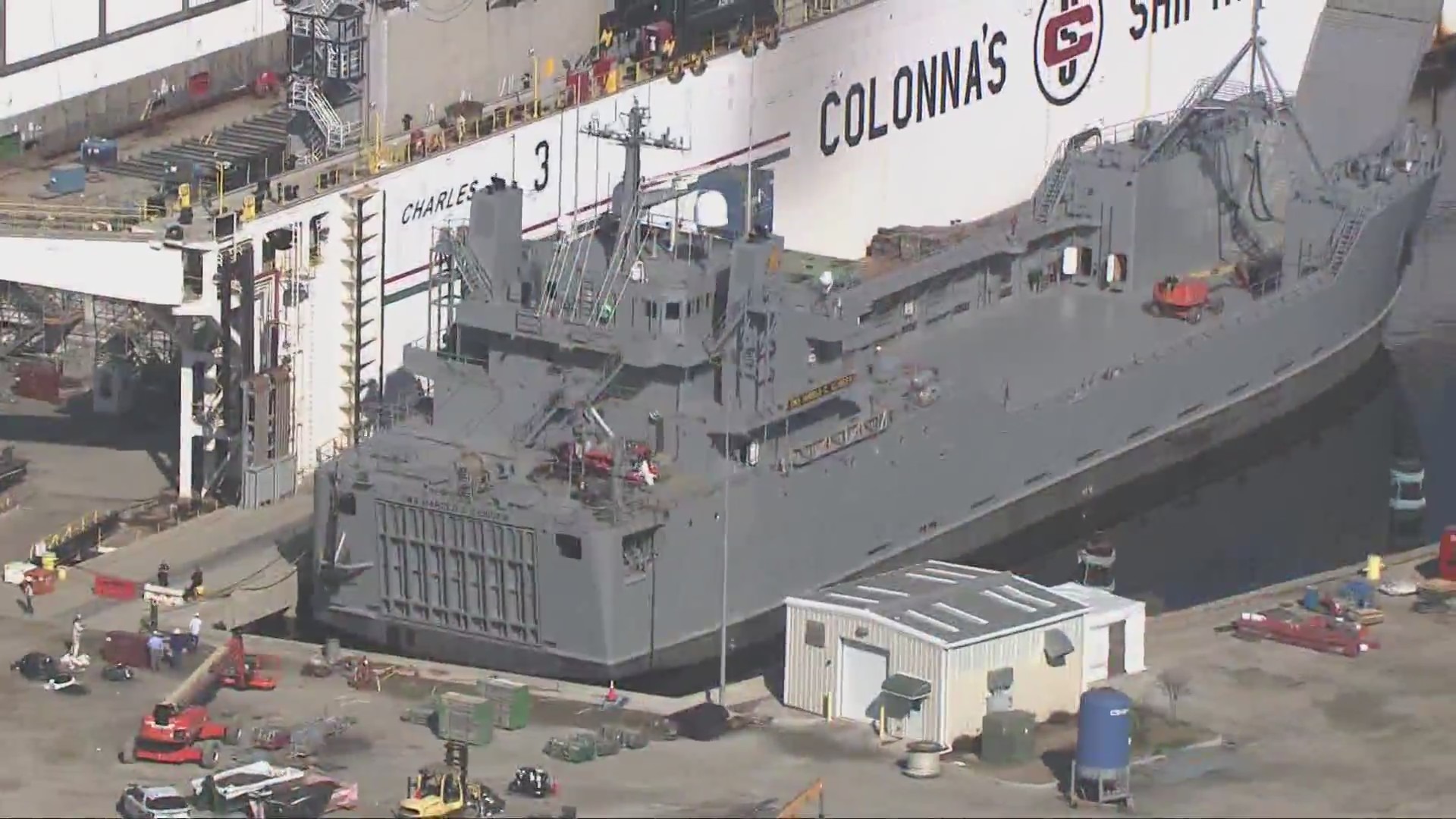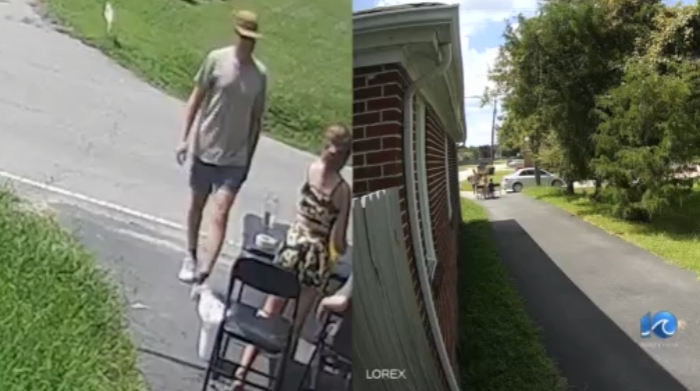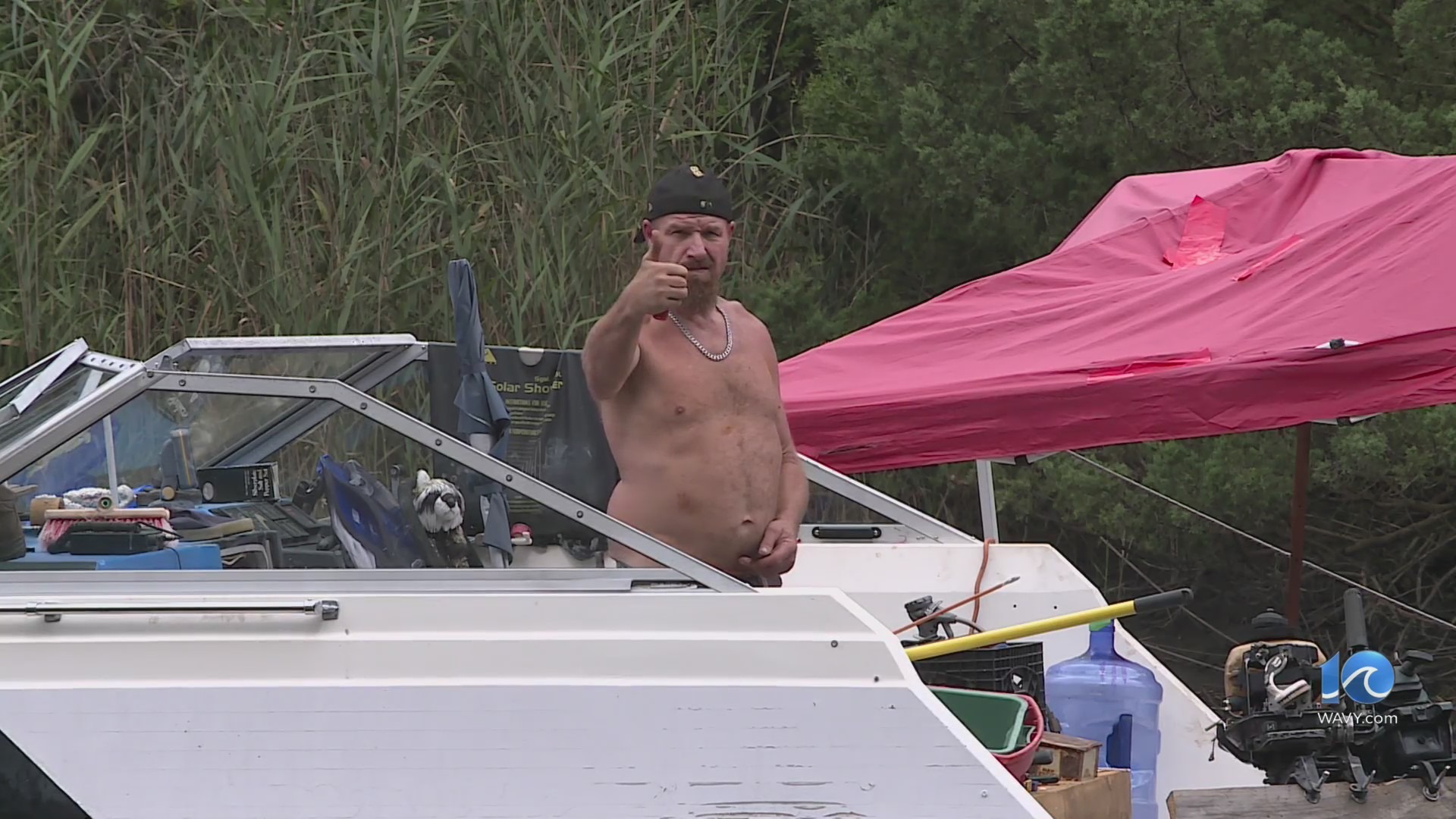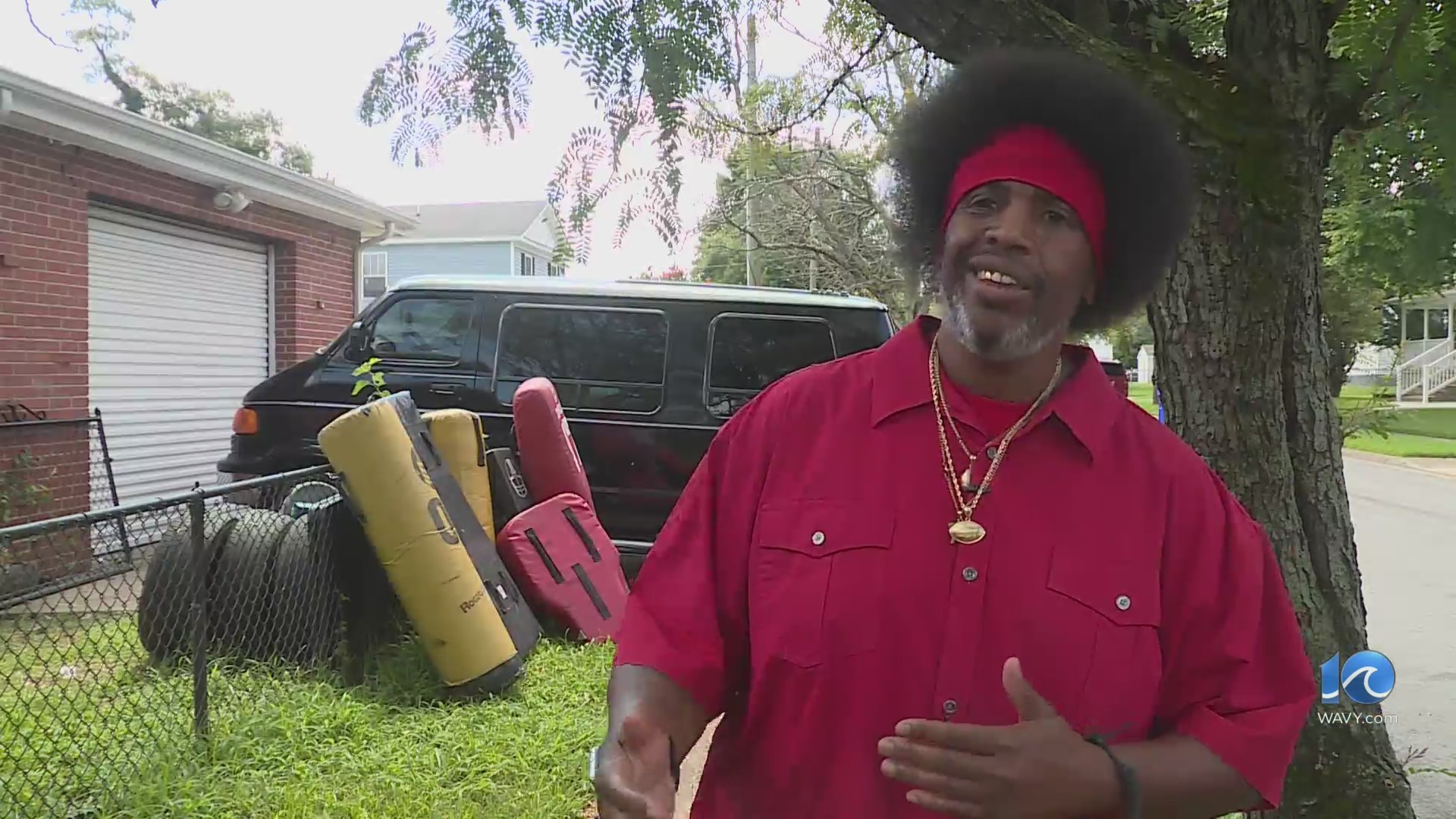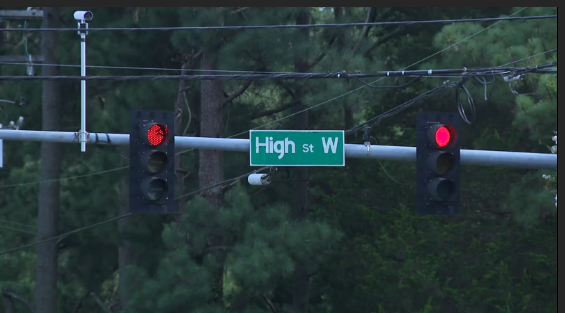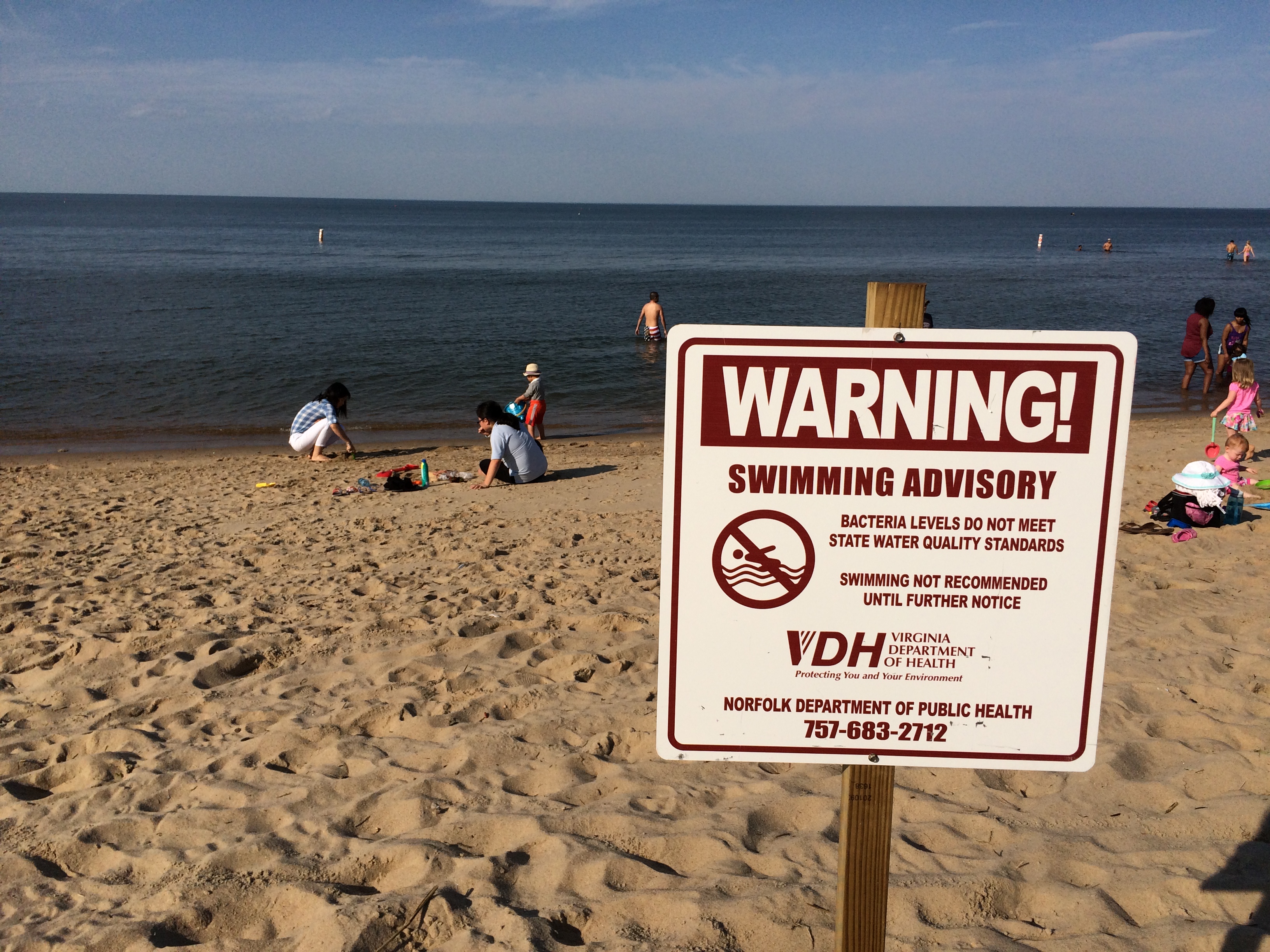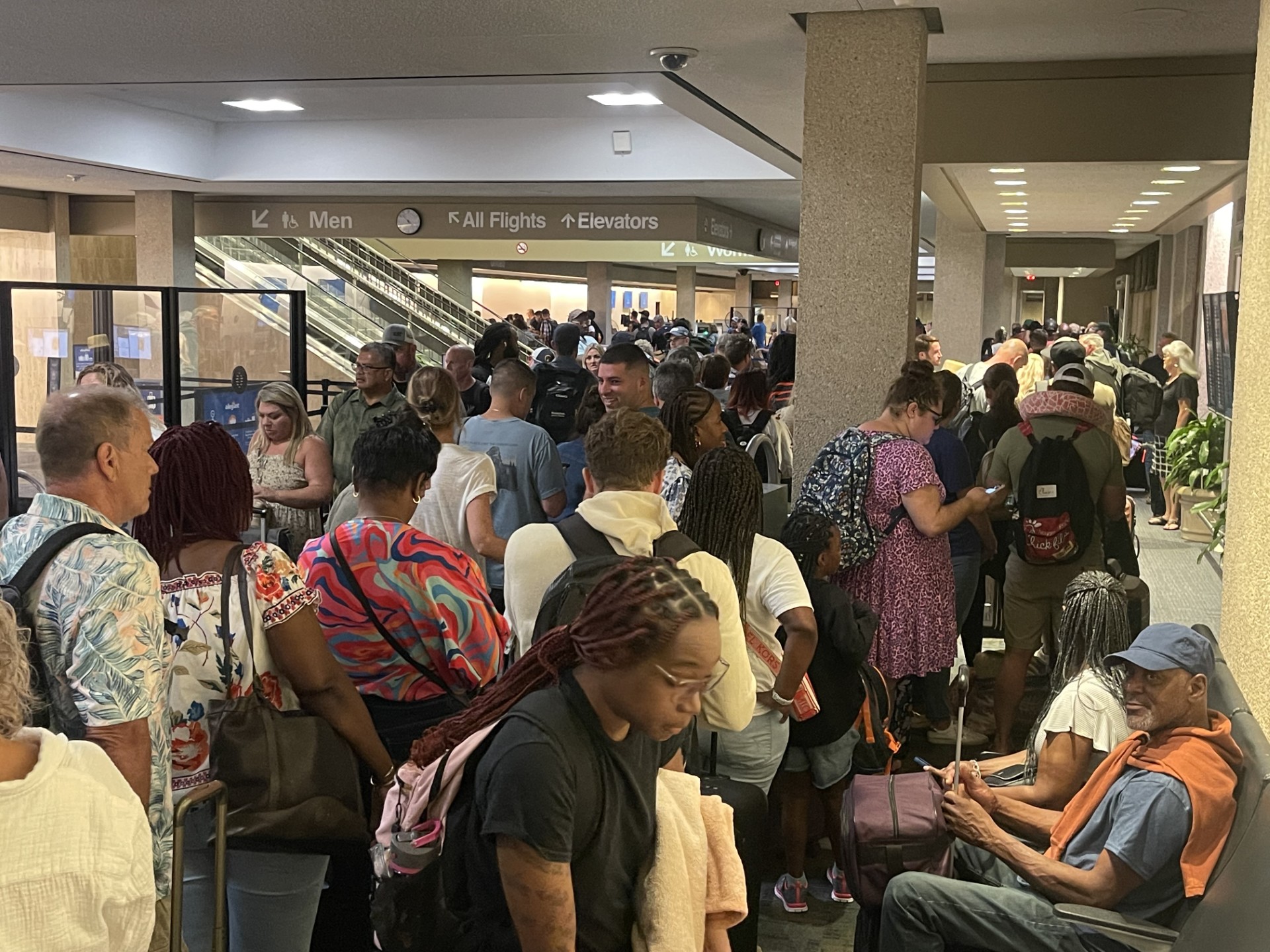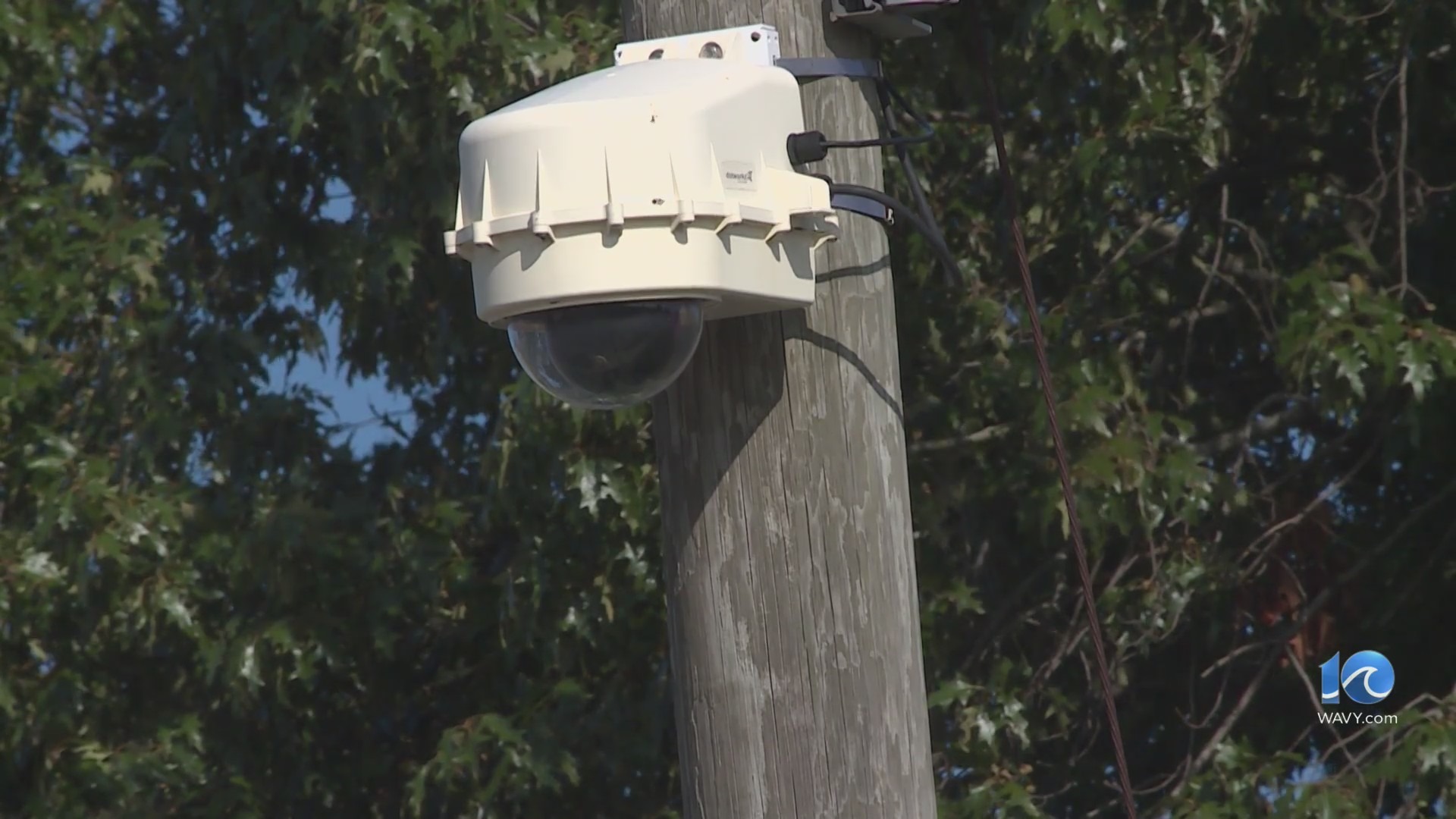CHESAPEAKE, Va. (WAVY) — Doug Vanderlip faced danger, grief, and achieved great success helping build the communications infrastructure in the war-torn region of Afghanistan.
This Veteran was devastated by America’s chaotic exit dismantling the hard work over 20 years of presence in Afghanistan.
“So this is Thunder and Sparky,” Doug Vanderlip claps to get their attention. Thunder and Sparky are two beautiful horses on his Chesapeake, Virginia ranch of refuge. He calls it refuge because it is his escape.
Lt. Commander Navy Reserve Retired Doug Vanderlip considers Thunder and Sparky, “My PTSD dogs, but I’m not diagnosed with it, but I went to counseling after both of my deployments.”
Doug’s two deployments in Afghanistan covered 13 months. The first was from January 2012 through June 2012 and the second tour was from September 2015 until May 2016.
Before going on his first tour, he spoke with a mentor of his, who provided some advice. “She called me before my first deployment and said take a lot of pictures, and that’s exactly what I did.”
Doug was impacted, as most of America was, after the September 11, 2001 terrorist attacks. “The call to go to Afghanistan was important to me after 9-11,” Doug said.
His job in Afghanistan was to help build the technology infrastructure to support the Afghan National Army and the country. It was vitally important, rewarding work, but danger was all around.
“Several Americans were getting killed by what we call insider threats.”
One of Vanderlip’s pictures is of a memorial for U.S. Army General Harold Greene who was killed August 5, 2014 by a member of the Afghan National Army thought to be a friend.
“We implemented the Guardian Angel program the week that I arrived, so we could not work with Afghan National Army without having a shooter with us in the room.”
Vanderlip was at the base where on October 11, 2015, a helicopter crashed in a non-hostile incident, killing five.
“The helicopter came right down on the camp. One of my spectrums analyst guys from Lithuania, Paul, was in that helicopter and survived.”
Doug had a picture of Paul in his video production he put together to remember his time in Afghanistan, and it was Paul who worked on frequency management with Vanderlip.
“We did a lot with system development, I worked really closely with the State Department, and implementations of the voting systems and the driver’s license systems.”
These are two systems we take for granted, but Vanderlip was busy trying to improve Afghanistan with s systems the United States uses, that work.
Another project under his team was radio frequency management throughout the country.
“With the computer system you can tell who gets paid, and who doesn’t get paid, and right now it is all written down with a paper trail. It is easier to cheat the system with paper that can disappear and be altered. We have systems for pay accountability for logistics and for tracking weapons.”
Now, Doug looks forward to his tranquility on the ranch. “I can come down, and the world disappears, and I don’t have to worry about things. They are very therapeutic.”
Vanderlip is troubled now on how it all ended in Afghanistan, “Our NATO brothers and sisters. They did as much as we did year after year.”
He said the chaotic images and thinking about how much money and time and lives were invested, troubles him.
“After the end, I didn’t really talk to anyone for two days. It was a sickening in my belt.”
As he looks at his pictures, he has a sinking feeling, wondering what we got for our 20-year involvement in Afghanistan, “I think we should have had a plan, but just picking up and running is never a good answer.”
He thinks no plan, and giving up, allows the Taliban to take over, “My Afghan friends and their families are getting murdered down there; it is horrible.”
Vanderlip says he’s in contact with four of his translators who came to America on Special Immigration Visas to escape death.
As for policy, this is what Doug said he would have done with Afghanistan, “It would not be political. I would have called together a lot of senior leaders, admirals, generals that had been there over the last 20 years. I would have called them into a room, and I would have put a plan together. I would have taken their advice.”
Vanderlip is left to ponder what might have been.
If Doug had to sum up his experience in Afghanistan in three words, he said it would be “tragedy, loss, but also hope.”



























